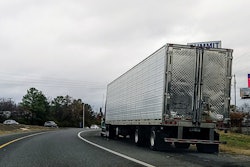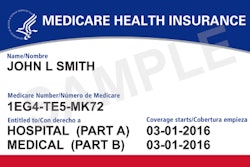In addition to the practices detailed in the Partners in Business section dedicated to liability insurance, other changes to your insurance policy may not be as impactful in the amount they reduce your premiums, but they can still be effective tools to utilize to save money. These changes include:
- Reducing your radius of operation.
- Locating and operating your business outside of regions that by nature result in higher than usual commercial-auto liability insurance premium rates -- areas, for instance, around major cities like New York, Los Angeles, Chicago, Miami, etc.
- Removing coverages that are not typically needed or required, such as general liability, hired auto, non-owned trailer, and etc.
- Adjusting the commodities you transport in favor of less-risky and lower-cost commodities, including those with less nominal risk of theft. If you're not hauling hazmat, remove all hazmat from your profile, then freight such as electronics, pharmaceuticals and shell fish in favor of more general freight like canned goods, paper, non-alcoholic beverages and ag products like grain and feed.
- Increase your deductibles to the maximum amount offered by the insurance company.
It's important to practice honesty as your best policy when it comes to details about your operation considered by insurers. The consequences of dishonesty can be devastating.
Consider the documented case of a driver who was reentering the industry and starting his own trucking company. After completing the insurance application with an agent, that agent submitted it to several insurance companies only to find that all of the companies he typically worked with declined to even offer a quote.
The agent reviewed all the information. None of the company owner’s drivers had any tickets or violations, there was only one insurance claim from the gentleman’s past (not uncommon for most drivers), and the trucks and trailers were all on the newer side.
He then contacted one of the insurance carriers, who noted the owner’s previous federal operating authority had been revoked because his insurance had been canceled by the insurance company, yet he'd failed to disclose that history.

If you are ever tempted to, or if anyone (a business partner, friend or even an insurance agent) suggests you should, mislead your insurance company, don’t do it. Here are some of the most common deceptions:
- Not including all vehicles owned or operated on the policy (this includes both trucks and trailers).
- Not including all drivers on the policy.
- Utilizing someone else’s address as a garaging address.
- Utilizing a P.O. Box address as the physical location of the business.
While these deceptions might reduce your premium, they are also valid reasons for an insurance company to cancel your insurance policy. Once that happens, it follows you like a bad smell after hitting a skunk. No matter how hard you try you just can’t get rid of it and nobody wants to park next to you in the truck stop. That’s basically how insurance companies deal with dishonest owners.
Read next: Income replacement insurance, disability, downtime claims










